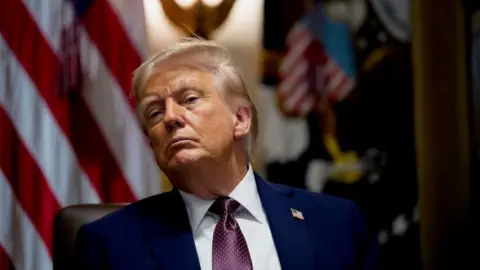In recent days, the Jeffrey Epstein scandal has resurfaced in U.S. politics, raising questions about its potential implications for Donald Trump and others involved. The Justice Department's release of over 33,000 pages of documents has sparked renewed interest in the case, but much of the information has been deemed unremarkable or already available.
Despite this, bipartisan efforts have emerged in Congress, led by Republican Thomas Massie and Democrat Ro Khanna, to push for a vote that would allow the full release of Epstein-related documents. This week, Epstein victims held a press conference at the Capitol to bolster support for these efforts, shining a spotlight on the human impact of the scandal that has remained overshadowed by concerns over powerful figures’ involvement.
Trump has previously dismissed the Epstein connection as a fabrication by his political adversaries; however, this approach is becoming increasingly tenuous. If Congress were to release files that implicate Trump or reveal damaging information, the backlash could be significant.
Three possible scenarios may unfold: First, the Epstein story may persist without causing lasting political harm to Trump, serving as a distraction rather than a crisis. Second, revelations could emerge that ignite public outrage and scrutiny, placing Trump under serious pressure ahead of upcoming elections. Lastly, the scandal might simply fade, as others have before it, leaving the affair confined to the fringes of political discourse.
Historically, Trump has shown an uncanny ability to weather political storms, often transforming potential threats into fleeting controversies. Whether the Epstein saga will follow a similar trajectory remains to be seen, but the victims' voices now may not be so easily ignored in the political arena.






















